June 7, 2025 | 20:42 GMT +7
June 7, 2025 | 20:42 GMT +7
Hotline: 0913.378.918
June 7, 2025 | 20:42 GMT +7
Hotline: 0913.378.918
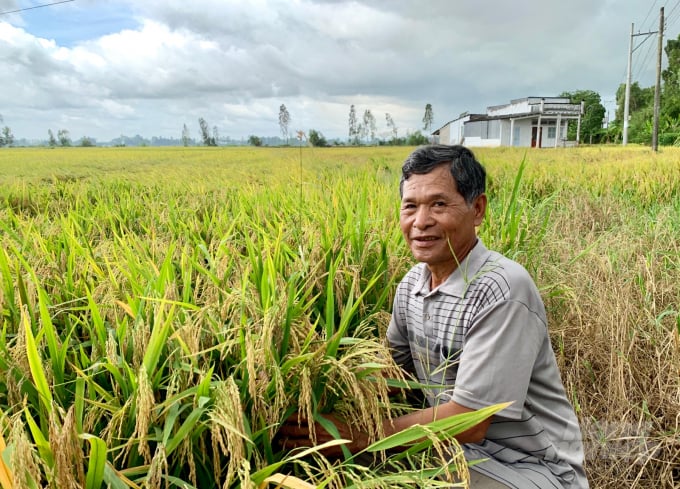
Farmers in the Mekong Delta applied farming technicals in drought and saline areas. Photo: HD.
Climate change is getting more and more clear in the Mekong Delta. In the past 3 years, drought and salinity came earlier and deeply penetrated the hinterland. As a result, every January, farmers face many difficulties due to the lack of water in their fields.
From October 2020, the Department of Crop Production coordinated with Long An, Tien Giang, Tra Vinh, and Soc Trang provinces to fieldwork and planned to sow one month earlier than previous years.
In the two districts of Long Phu and Tran De, Soc Trang province, many households suffered heavy damages because their crops died caused by lack of water.
Faced with that situation, farmers are aware of the importance of agriculture production conversion.
From 2017 to 2020, Soc Trang province has converted 20,600 hectares of rice-growing land to crops and perennials or combine aquaculture.
As a result, planting the crops brings farmers a profit of VND 40-80 million per hectares. Perennials planting brings a profit of VND 100-200 million per year. A combination of rice-growing with aquaculture brings a profit of VND 15-20 million per hectares.
The Department of Agriculture and Rural Development of Soc Trang province highly appreciates the farmers' agriculture production conversion. Farmers have selected potential crop varieties, and produced them under safety standards.
Water resources play an important role in crop conversion. In the face of climate change, prolonged drought and salinity, infrastructure investment is essential.
However, because investment capital is still limited, many farmers are still confused about choosing the right crops following the markets' needs.
In fact, the conversion area is small and spontaneous. To aim for sustainable agriculture production, many localities have encouraged businesses to associate with cooperatives and farmers.
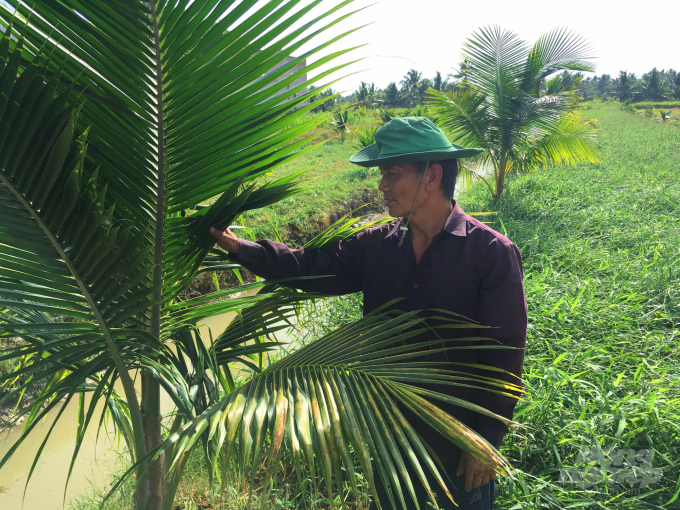
Coconut is one of the trees that is adaptable to climate change. Photo: MD.
Coconut plays a key role, grew with more than 73,000 hectares in Ben Tre province. The fruit area is over 29,000 hectares, and the rice-growing area is over 30,000 hectares. This is a favorable condition for farmers to agriculture restructure crops and livestock.
Mr. Huynh Quang Duc, Deputy Director of the Department of Agriculture and Rural Development of Ben Tre province, said that converting to other crops will bring higher economic efficiency in the context of drought and prolonged saline.
In addition, shrimp and cow farming is also adaptive to climate change. Together with rice-growing, the economy of the farmer households has improved significantly.
According to Mrs. Tran Thi Thu, Binh Thanh commune, Giong Trom district, rice yield was ineffective due to saline, so her family converted more than 3,000 square meters to grow coconuts and grass in the 2020-2021 Winter-Spring crop.
Currently, Ben Tre province's farmers have changed from thinking about agricultural production to doing agricultural economy. They are thoughtful and cautious in choosing plants, especially implementing measures to prevent drought and salinity for plants.
In addition, farmers also apply science and technology, clean production according to GAP standard on many crops and livestock.
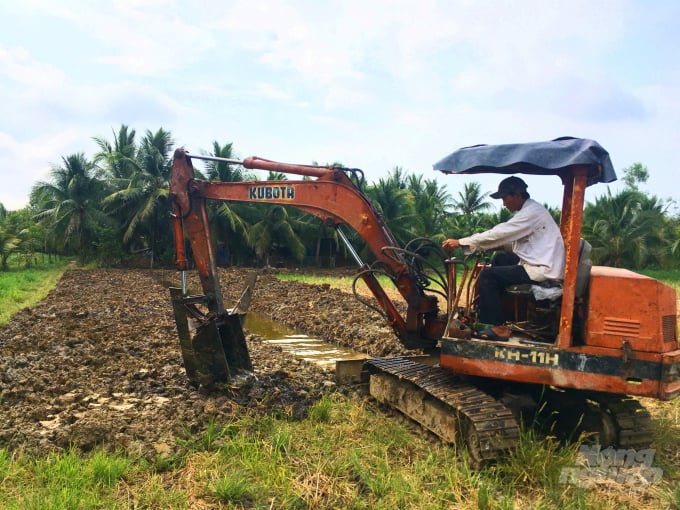
Convert ineffective rice-growing areas to fruit trees. Photo: MD.
Up to now, Ben Tre province's many agricultural products have been granted certificates or being built geographical indications such as green Siamese coconut, green skin pomelo, longan, durian, rambutan, etc., and are well-received by the market.
Vice-Chairman of Ben Tre Provincial People's Committee Nguyen Minh Canh emphasized that the province will continue to restructure in the upcoming time. This is one of the key tasks in the province's socio-economic development.
Ben Tre province has set a target that by 2025, the growth rate of Gross Regional Domestic Product (GRDP) in agro-forestry-fishery will be 4-4.7% per year; product value per hectare of cultivation area will reach VND 180 million per hectare, aquatic products will reach VND 450 million per hectare.
From 2021 to 2025 and by 2030, Ben Tre province will promote agriculture restructuring towards modernity based on local advantages, market demand, and response to climate change.
In addition, the province will speed and completion of the agricultural product value chain, focusing on the restructure of crops and livestock towards improving agriculture products' quality and competitiveness.
By 2025, all key agricultural products of the province must be traceable and have geographical indications before entering the market.
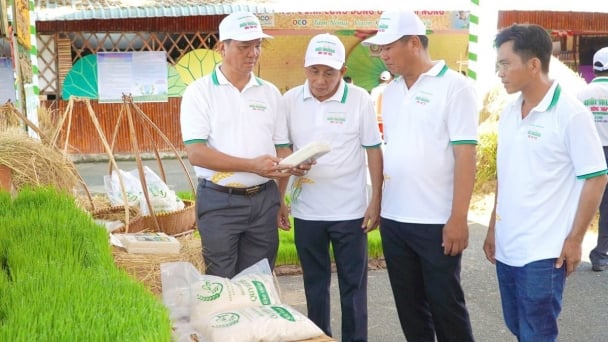
(VAN) Dong Thap has launched a meeting in response to the Action Month for the Environment under the theme 'Live Green - Join Hands for a Green Economy' at Tram Chim National Park.
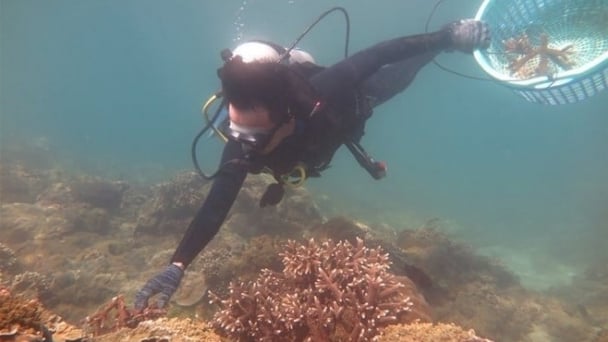
(VAN) The ocean has the capacity to absorb millions of tons of carbon, provided that mangrove forests, coral reefs, and biodiversity are protected.
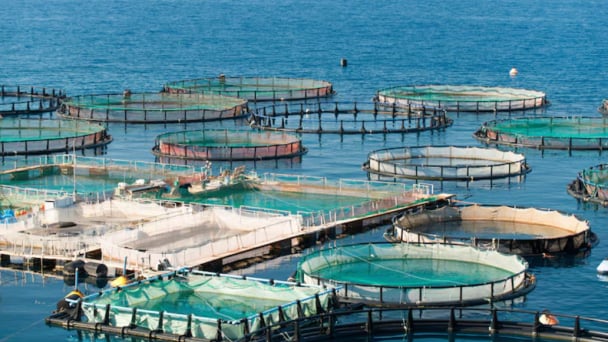
(VAN) Technology is redrawing the map of Vietnamese aquaculture: more modern, greener, and more sustainable.

(VAN) Novel process harnesses machine learning to reveal groups of genes that determine how efficiently plants use nitrogen.

(VAN) Several scientists and farmers are experimenting with soil treatment in some key durian-growing regions such as Cai Lay (Tien Giang), Dak Song, Gia Nghia, and Dak R’lap (Dak Nong).
/2025/05/25/4127-3-073637_820.jpg)
(VAN) Thanks to the promotion from an FAO-implemented project, vegetable production in greenhouses in Moc Chau has seen strong development, from 1.5 hectares in 2021 to nearly 50 hectares in 2024.

(VAN) FAO has recently supported USD 140,000 to implement the project 'Risk mitigation human-animal interface risks through disease control initiatives in pig farming.'